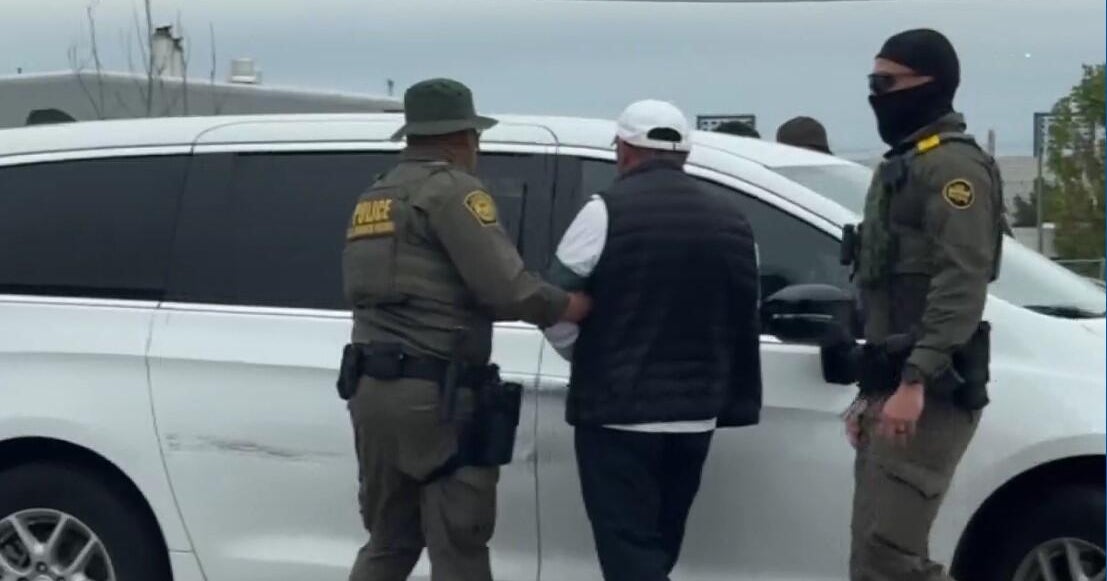Federal agents detained several rideshare drivers on Friday at a parking lot at O’Hare International Airport, the latest target in immigration enforcement across Chicago.
Witnesses said agents came in two waves at the Transportation Network Provider – or TNP – Alpha lot on Friday; once in the morning and again in the afternoon. The TNP lot is a designated area for rideshare drivers to park and wait for clients at the airport.
Video obtained by CBS News Chicago showed agents interrogating and detaining drivers.
One Uber driver from Guatemala said he was eating lunch when agents walked up to him and asked him if he was a U.S. citizen. The driver said he was nervous but rebuffed the agents’ request.
“You know, I cannot help you, please let me eat my food,” the driver said he told the agents.
The agents walked away, the man said, but other people were detained and taken away.
Another driver, Jack, recounted what happened and described the scene as chaotic.
“Just grabbing people, checking IDs. They arrested like, what I seen, a bunch of people. They had vans and stuff like that,” he said.
CBS News Chicago reached out to the Department of Homeland Security asking about the incident but has not yet heard back.
Consulate urges Chicago Marathon runners from Mexico to take precautions
Many people arriving at O’Hare this week are coming for Sunday’s Chicago Marathon.
Of the 50,000 runners participating in the race, 3,000 are from Mexico – the largest contingent of runners from outside the U.S.
The Mexican Consulate in Chicago is among many organizations hosting a cheer zone along the marathon route.
“This year it feels different,” said Reyna Torres Medivil, the Consul General of Mexico in Chicago.
The agency said it has received calls and emails from runners and their family and friends voicing concerns about ICE enforcement while they’re in Chicago. The agency is telling people visiting from Mexico to have copies of documentation on their person.
“We have been advising them that they should carry a photograph of their passports in their telephones, but also perhaps a photocopy in your pocket. It’s better to be safe,” Torres Medivil said.
